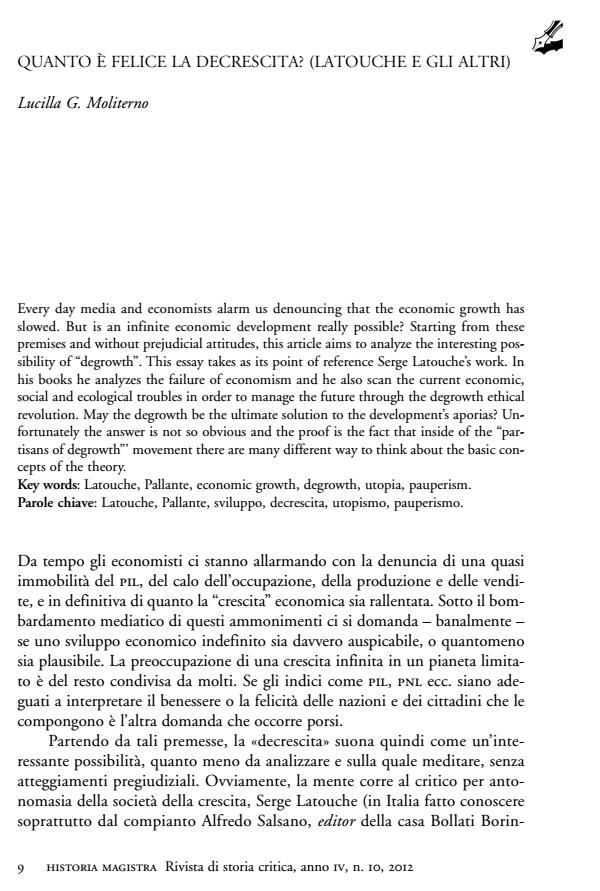Quanto è felice la decrescita? (latouche e gli altri)
Titolo Rivista HISTORIA MAGISTRA
Autori/Curatori Lucilla G. Moliterno
Anno di pubblicazione 2013 Fascicolo 2012/10
Lingua Italiano Numero pagine 6 P. 9-14 Dimensione file 81 KB
DOI 10.3280/HM2012-010002
Il DOI è il codice a barre della proprietà intellettuale: per saperne di più
clicca qui
Qui sotto puoi vedere in anteprima la prima pagina di questo articolo.
Se questo articolo ti interessa, lo puoi acquistare (e scaricare in formato pdf) seguendo le facili indicazioni per acquistare il download credit. Acquista Download Credits per scaricare questo Articolo in formato PDF

FrancoAngeli è membro della Publishers International Linking Association, Inc (PILA), associazione indipendente e non profit per facilitare (attraverso i servizi tecnologici implementati da CrossRef.org) l’accesso degli studiosi ai contenuti digitali nelle pubblicazioni professionali e scientifiche.
Every day media and economists alarm us denouncing that the economic growth has slowed. But is an infinite economic development really possible? Starting from these premises and without prejudicial attitudes, this article aims to analyze the interesting possibility of "degrowth". This essay takes as its point of reference Serge Latouche’s work. In his books he analyzes the failure of economism and he also scan the current economic, social and ecological troubles in order to manage the future through the degrowth ethical revolution. May the degrowth be the ultimate solution to the development’s aporias? Unfortunately the answer is not so obvious and the proof is the fact that inside of the "partisans of degrowth"’ movement there are many different way to think about the basic concepts of the theory.
Parole chiave:Latouche, Pallante, sviluppo, decrescita, utopismo, pauperismo.
Lucilla G. Moliterno, Quanto è felice la decrescita? (latouche e gli altri) in "HISTORIA MAGISTRA" 10/2012, pp 9-14, DOI: 10.3280/HM2012-010002